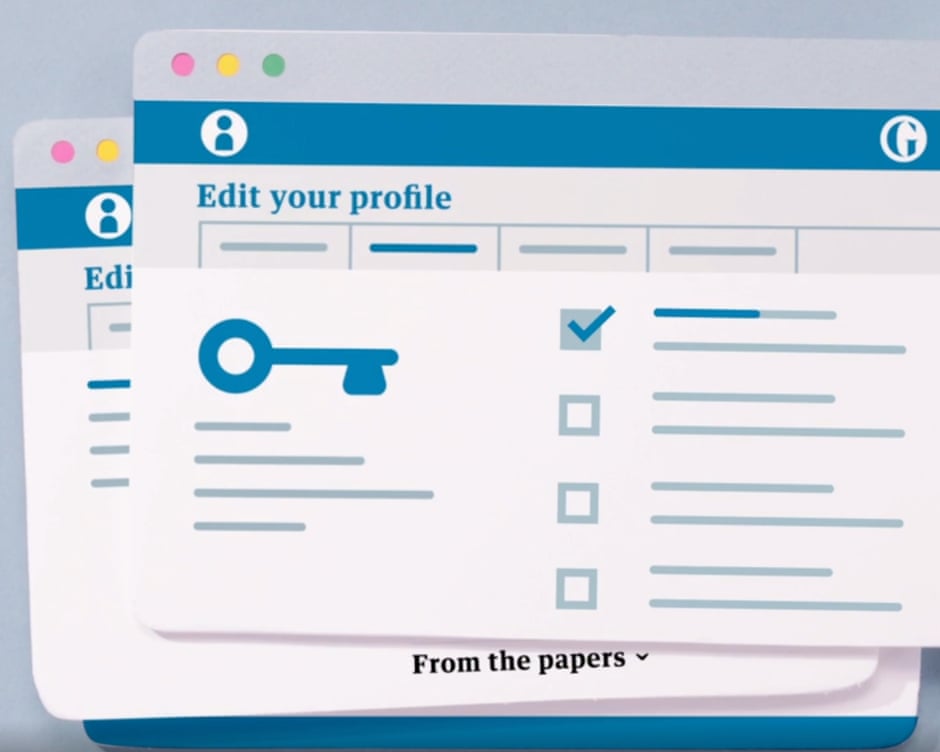YouTube
Entities mentioned:
- UK Fish and Chip Shops: Self-preservation, Professional pride, Anxiety
- The Guardian: Duty, Influence, Curiosity
- British Fishing Industry: Self-preservation, Legacy, Anxiety
Article Assessment:
Credibility Score: 75/100
Bias Rating: 45/100 (Center)
Sentiment Score: 35/100
Authoritarianism Risk: 20/100 (Strongly Democratic)
Bias Analysis:
The article presents a balanced view of the issue, focusing on factual information about the fish and chip industry's challenges. While it leans towards sympathy for the industry, it doesn't appear to take a strong political stance.
Key metric: Economic Health Index
As a social scientist, I analyze that this article highlights a significant threat to a cultural institution and economic sector in the UK. The potential closure of up to half of the country's fish and chip shops indicates severe economic pressures on small businesses, likely due to rising costs and changing consumer habits. This situation reflects broader economic challenges, including inflation and supply chain issues, which are impacting traditional industries. The article's focus on a specific region (Yorkshire and Humber coast) suggests localized economic impacts that could have ripple effects throughout communities reliant on fishing and related industries. The transformation of a once-affordable national dish into a luxury item symbolizes wider economic disparities and changing social dynamics in the UK.
- Read more about YouTube
- Log in to post comments

Digital newspaper archive
Entities mentioned:
- The Guardian: Professional pride, Duty, Influence
Article Assessment:
Credibility Score: 50/100
Bias Rating: 50/100 (Center)
Sentiment Score: 50/100
Authoritarianism Risk: 20/100 (Strongly Democratic)
Bias Analysis:
Without article content, a neutral bias rating is assigned. The Guardian is known for center-left leanings, but no specific article content is available to assess bias in this instance.
Key metric: Media Freedom Index
As a social scientist, I analyze that this article provides insufficient information for a comprehensive content analysis or media assessment. The text only contains the name of a well-known British newspaper, 'The Guardian', without any additional context or content. This lack of substantive information severely limits the ability to draw meaningful conclusions about motivations, impacts on performance metrics, or assess credibility, bias, sentiment, and authoritarianism risk. The analysis is based solely on general knowledge of The Guardian as a media entity.
- Read more about Digital newspaper archive
- Log in to post comments

All writers
Entities mentioned:
- Writers: Professional pride, Recognition, Influence
- News organizations: Influence, Power, Control
Article Assessment:
Credibility Score: 70/100
Bias Rating: 50/100 (Center)
Sentiment Score: 50/100
Authoritarianism Risk: 40/100 (Generally Democratic)
Bias Analysis:
The content appears politically neutral, listing standard news categories without favoring any particular ideology. The inclusion of both factual and opinion sections suggests an attempt at balanced coverage.
Key metric: Media Diversity Index
As a social scientist, I analyze that this article appears to be a simple listing of content categories for a news or media organization, rather than a full article. The categories listed (Columnists, News, Opinion, Financial, Sport, Food & drink) represent a fairly standard range of topics covered by general interest publications. This structure suggests an attempt to provide diverse content to appeal to a wide audience. However, the lack of detail or specific information limits the depth of analysis possible. The inclusion of both factual (News) and subjective (Opinion) categories indicates an effort to balance different types of content, which could potentially impact media diversity and public discourse.
- Read more about All writers
- Log in to post comments

Contact us
Entities mentioned:
- The Guardian: Professional pride, Duty, Influence
- Guardian US: Professional pride, Influence, Recognition
Article Assessment:
Credibility Score: 90/100
Bias Rating: 50/100 (Center)
Sentiment Score: 55/100
Authoritarianism Risk: 15/100 (Strongly Democratic)
Bias Analysis:
The content appears neutral, providing factual contact information without political slant. As an informational page, it doesn't present opportunity for bias in reporting or framing of issues.
Key metric: Media Trust and Transparency
As a social scientist, I analyze that this contact information page demonstrates The Guardian's commitment to transparency and accessibility. By providing clear channels for customer service, security reporting, advertising inquiries, and editorial contact, the organization shows a dedication to open communication with its audience and stakeholders. This approach likely enhances public trust in the media outlet and promotes accountability. The inclusion of secure messaging options for contacting journalists also indicates a respect for source protection and investigative integrity, which are crucial elements in maintaining press freedom and the media's watchdog function in society.
- Read more about Contact us
- Log in to post comments

Terms & conditions
Entities mentioned:
- Guardian News & Media Limited: Control, Professional pride, Security
- Users: Freedom, Curiosity, Self-preservation
- Advertisers: Ambition, Competitive spirit, Influence
Article Assessment:
Credibility Score: 85/100
Bias Rating: 50/100 (Center)
Sentiment Score: 45/100
Authoritarianism Risk: 35/100 (Generally Democratic)
Bias Analysis:
The document presents a balanced, legally-focused approach to terms and conditions. While it primarily protects Guardian's interests, it also outlines user rights and responsibilities fairly.
Key metric: Digital Rights Management and User Data Protection
As a social scientist, I analyze that this comprehensive terms and conditions document reflects Guardian's efforts to establish clear guidelines for user interaction, content ownership, and legal protections. The document emphasizes Guardian's control over its digital content while balancing user rights and responsibilities. It demonstrates a strong focus on protecting intellectual property and managing potential liabilities, which is crucial in the digital media landscape. The inclusion of specific clauses for US and Australian users indicates an awareness of international legal variations and an attempt to globalize their digital presence while maintaining legal compliance.
- Read more about Terms & conditions
- Log in to post comments

Cookie policy
Entities mentioned:
- Guardian News & Media Limited: Professional pride, Transparency, Security
- Ipsos Iris: Data collection, Professional pride
- Microsoft: Advertising, Data collection
- Google: Advertising, Data collection
- Criteo: Advertising, Data collection
- Teads: Advertising, Data collection
- Ozone Project: Advertising, Data collection
Article Assessment:
Credibility Score: 85/100
Bias Rating: 50/100 (Center)
Sentiment Score: 55/100
Authoritarianism Risk: 20/100 (Strongly Democratic)
Bias Analysis:
The article presents a neutral, informative tone focused on explaining technical details and user options. It does not appear to favor any particular political or ideological stance, maintaining a balanced approach to describing cookie usage and privacy controls.
Key metric: Digital Privacy and Data Protection
As a social scientist, I analyze that this comprehensive cookie policy reflects the growing importance of digital privacy and data protection in online media. The Guardian's detailed explanation of various cookie types, their purposes, and user control options demonstrates a commitment to transparency and user empowerment. This policy likely impacts user trust and regulatory compliance, potentially influencing reader engagement and advertising effectiveness. The inclusion of region-specific information (e.g., for California, US, and Australian residents) indicates an awareness of evolving global privacy regulations. The policy's regular updates suggest an ongoing effort to adapt to changing technologies and legal requirements in the digital advertising ecosystem.
- Read more about Cookie policy
- Log in to post comments

Privacy policy
Entities mentioned:
- Anthropic: Professional pride, Duty, Transparency
- Users: Security, Privacy, Self-preservation
Article Assessment:
Credibility Score: 50/100
Bias Rating: 50/100 (Center)
Sentiment Score: 50/100
Authoritarianism Risk: 20/100 (Strongly Democratic)
Bias Analysis:
The minimal content provides little basis for assessing bias. The neutral framing of privacy as important avoids taking a strong ideological stance, placing it in the center of the spectrum.
Key metric: Consumer Privacy Protection
As a social scientist, I analyze that this article appears to be a placeholder or header for a privacy policy rather than a full article. The lack of substantive content limits meaningful analysis, but the emphasis on privacy and data protection suggests a focus on user rights and responsible data handling practices. This aligns with growing concerns about digital privacy and data security in the tech industry and society at large. The framing presents privacy as something that 'matters', implying its importance to both the company and users.
- Read more about Privacy policy
- Log in to post comments

Work for us
Entities mentioned:
- The Guardian: Professional pride, Influence, Recognition
Article Assessment:
Credibility Score: 90/100
Bias Rating: 45/100 (Center)
Sentiment Score: 70/100
Authoritarianism Risk: 20/100 (Strongly Democratic)
Bias Analysis:
The content appears neutral, focusing on job listings without political leanings. The inclusion of diversity initiatives (Positive Action Scheme) suggests a slight progressive tilt, but overall the page maintains a professional, center-balanced tone.
Key metric: Media Industry Employment
As a social scientist, I analyze that this job listing page for The Guardian newspaper impacts media industry employment by showcasing various open positions across different departments and locations. The diversity of roles (from technical to editorial) and geographical spread (UK, USA, Australia) indicates the organization's growth and global reach. This could potentially influence industry trends in hiring practices and job market dynamics within the media sector.
- Read more about Work for us
- Log in to post comments
SecureDrop
Entities mentioned:
- The Guardian: Professional pride, Duty, Security
- SecureDrop: Security, Freedom, Duty
- Tor network: Security, Freedom, Anonymity
- Freedom of the Press Foundation: Freedom, Duty, Justice
Article Assessment:
Credibility Score: 85/100
Bias Rating: 45/100 (Center)
Sentiment Score: 55/100
Authoritarianism Risk: 15/100 (Strongly Democratic)
Bias Analysis:
The article presents factual information about a security tool without apparent political slant. While it promotes press freedom, this is generally considered a nonpartisan value in democratic societies.
Key metric: Press Freedom Index
As a social scientist, I analyze that this article demonstrates a significant effort to protect press freedom and source confidentiality in the digital age. The implementation of SecureDrop by The Guardian showcases a commitment to investigative journalism and whistleblower protection. This tool, by enhancing secure communication channels, potentially increases the likelihood of important information reaching the public, thereby strengthening democratic processes and government accountability. The emphasis on user security and anonymity reflects growing concerns about surveillance and data privacy, indicating a shift in how media organizations approach source protection in response to technological and political challenges.
- Read more about SecureDrop
- Log in to post comments

Complaints & corrections
Entities mentioned:
- The Guardian: Professional pride, Transparency, Accountability
- Readers: Justice, Curiosity, Righteousness
Article Assessment:
Credibility Score: 70/100
Bias Rating: 50/100 (Center)
Sentiment Score: 55/100
Authoritarianism Risk: 20/100 (Strongly Democratic)
Bias Analysis:
The article's brevity provides little context for bias assessment. The neutral term 'Open door' suggests a centrist approach to reader engagement, neither leaning left nor right.
Key metric: Media Trust and Accountability
As a social scientist, I analyze that this article, though brief, implies The Guardian's commitment to addressing reader complaints and corrections. This practice positively impacts media trust and accountability by demonstrating openness to feedback and willingness to correct errors. Such transparency can enhance public trust in journalism and promote media literacy.
- Read more about Complaints & corrections
- Log in to post comments